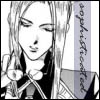
I really enjoyed reading Stephen King's book about writing. I've observed several times that I know snobby people who won't touch his stuff: I kind of want to shove this book in their face and tell them that this, this book by this crappy bestselling author? This contains the Ten Commandments of writing. Stuff like kill your darlings (no, really, do) and don't say sugar when you mean shit, and write every day, write all the time. It even suggests a way of getting out of writer's block.
(By snobby people, by the by, I don't mean people who have tried Stephen King and don't like it. That's fair enough, and, I think, as justifiable as my dislike of the Harry Potter books. I'm talking about people who refuse to ever read them, not because they don't like scary books or because they just can't get on with his writing, but just "on principle".)
Two things I really, especially loved about this, though.
1) He is up front and frank about this being just his experience. The book's a conversation with you about writing, and you've got room to disagree. He's just putting his thoughts on the table and saying, hey, if they'll help, I'm really glad.
2) The idea of the Ideal Reader, his being his wife. It reminds me of stuff other writers have suggested (write a book to your favourite author, make your stories love letters to someone, etc) and King writes about it with feeling and also understanding. He doesn't pretend that Ideal Reader won't ever laugh in your face.
So, I think this is definitely a book writers should read. If only to see if they can get their heads out of their asses and listen to all kinds of experience: if they can't, then they've got no business trying to write. It's got good advice, in his opinion and mine, and something obviously works because, hey, bestselling author.
I also think that maybe you should give this to your Ideal Reader to read. Tabitha King sounds like exactly the kind of first reader an author needs.